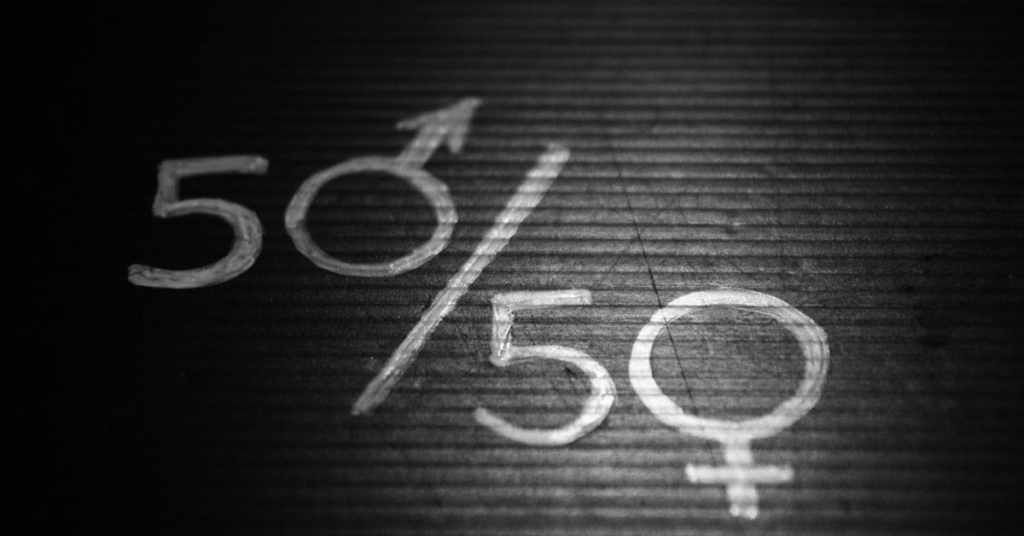‘It is time that we all see gender as a spectrum instead of sets of opposing ideologies.’
What is gender equality?
It is about ensuring that every individual has an equal opportunity and is not treated differently or discriminated against because of their characteristics. Gender equality is when people of all genders have equal rights, responsibilities, and opportunities. It impacts people of all ages and backgrounds and does not contribute to Nation’s development and progress.
Why is it important?
The growing awareness about the necessity of gender equality in India makes extremely prominent sense. Moreover, people gradually realize that equality is a women-centric issue but an economic one. It is only possible in an equal society that organizations and nations will reach their fullest potential and prosper, achieving greater heights.
Gender Equality prevents violence or anti-social behavior against citizens (especially women and children); it makes the Nation strong and safe ensuring fundamental rights for its citizens are protected well. Thus, helping the Nation to grow both economically and socially.
What is the most significant road BIGGEST ROADBLOCK TO ACHIEVING GENDER EQUALITY?
In India, gender inequality results from unequal or biased opportunities that impact individuals’ lives irrespective of gender.
There are risks, violations, and vulnerabilities; historically, girls in our society face more discrimination than they think. It is mainly because of their gender. Gender unfairness, social norms, and practices often lead to the possibility of child marriage, early pregnancy, domestic work, poor education and health, sexual abuse, exploitation, and violence. These instances will not change till the society value girls and make them aware of their rights. Also, bringing inequality is not the responsibility of any one gender. Still, we all should contribute and treat everyone well around us irrespective of any biases, caste, or creed as a society.
What can we do to mitigate this?
Every individual can collectively contribute to the achievement of specific outcomes. Some short-term goals like increasing access and options for education; others mid-term goals may include ending child marriage or restricting strict laws. Other long-term goals may consist of eliminating gender-biased sex selection, etc.
Changing the perspective towards gender equality should include all (men, women, girls, and boys). It must be mobilized in all possible sectors in society to spread awareness.
Only when society’s perception changes and every individual understands the significance of gender equality, we would be able to achieve the right balance.

India as a gender equality country-
Gender equality is not a moral responsibility or a social cause but a social, economic challenge. It leads to human development and plays as a catalyst in the Nation’s overall development. India being a Nation full of achievement, still lags few appreciations and milestones in the case of Gender Equality.
Discrimination between genders affects many aspects of an individual life, from career development and progress to mental health disorders. While Indian laws on rape, dowry, and adultery have women’s safety at heart and ensure protection, many highly discriminatory practices are still occurring at an alarming rate every day. Many cases remain unreported.
The achievement of gender equality in India implies changes for both men and women collectively. It is crucial not to overlook gender as an aspect of men’s or women’s social identity. It is undoubtedly the right of every citizen in India.
The Secret:
Gender equality in India is a term more which is more than just an equal representation in society. Without a doubt, Gender Equality in India is the secret for all upheld success that our Nation deserves in the long run; it is the secret mantra for achieving the desired state of the Nation and continued success.
While we did see significant progress over the last few decades like More girls are going to school and very few girls into early marriage. Women actively participate in parliament, defense and leadership positions, and law reformation.
Some more examples include– Men and women being paid at par for the same kind of work and having no biases based on gender at the workplace.
They get the same medical help, medicines, nutrition, support, etc.

In 2018, within the global context of the #MeToo and the Time’s Up movements, actress Tanushree Dutta shared her experiences of harassment in the Bollywood film industry and was said by many to have started and ignited the #MeToo conversation in India.
With the ever-growing movement and awareness in India, more and more women are speaking about their experiences of sexual harassment and gender-based violence and voicing their opinions on equality. But this does not mean that gender inequality no longer exists.
Despite this progress and people becoming more aware of gender equality, challenges remain due to social norms, biased laws, etc.
Let’s commit to accelerating equality for all with meaningful actions to build an inclusive nation.



